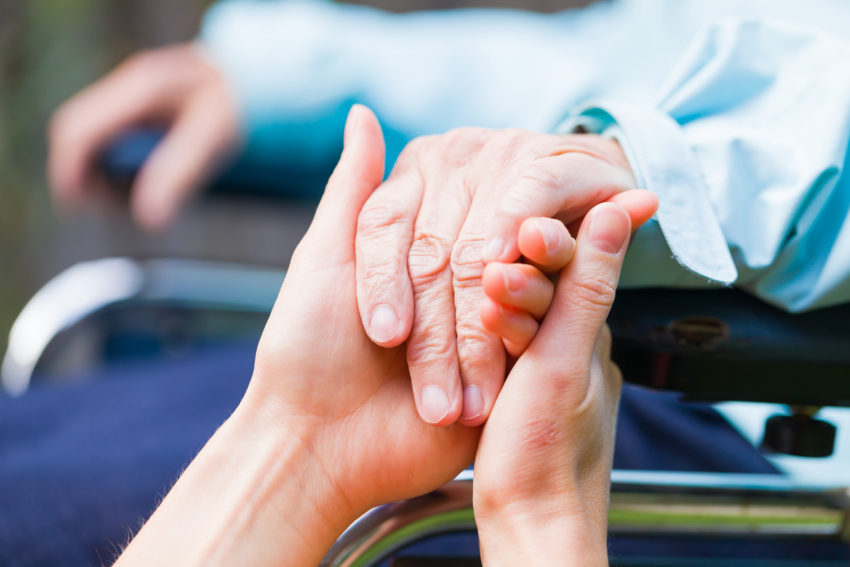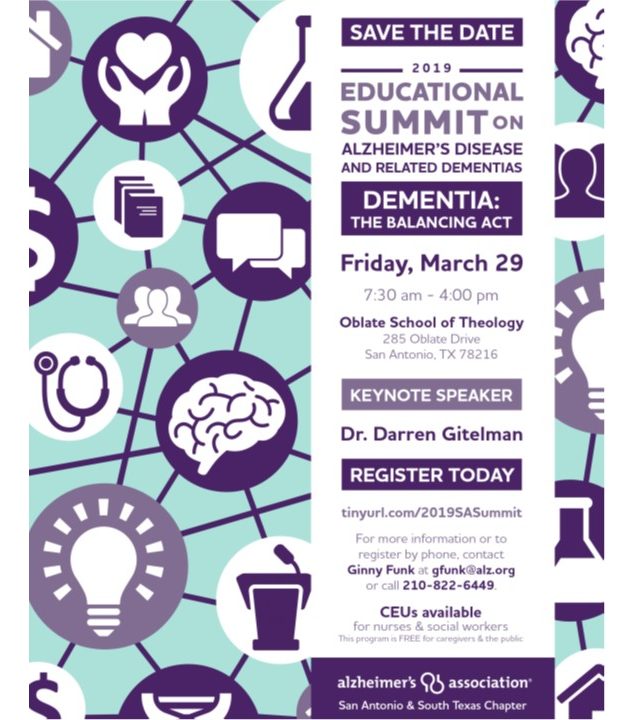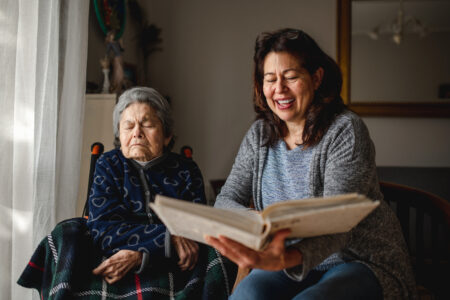
Share On Social!
In Latino culture, family is the heart and children are expected to be caregivers for their aging parents.
1 in every 3 U.S. Latino households has at least one family caregiver. These Latino caregivers—mainly women in their 40s—juggle multiple jobs or leave the workforce entirely to enter the respectable but high-stress role of taking care of aging family members, who are 1.5 times more likely to develop Alzheimer’s disease and other age-related mental health issues.
Latino caregivers of Alzheimer’s Disease patients deal with high levels of stress, anxiety, and depression symptoms, studies show.
“Too often, Latino caregivers do not know where to turn for guidance, relief, and support for their caregiving activities,” according to a recent report from the National Hispanic Council on Aging (NHCOA).
Economic Burden on Latino Caregivers

Latino caregivers spend 32 about hours a week giving care and taking on the more intensive caregiving needs. That’s more time than caregivers from other ethnic groups.
About 43% of Latino caregivers live with their loved ones versus 32% of non-Latino caregivers.
Many Latino caregivers make big changes in their employment. Some take a leave of absence, change jobs, or or stop work entirely.
Ultimately, this sets up caregivers for financial distress.
“One of the main challenges among Hispanic caregivers is finding a balance between the needs of their loved one and the caregiver’s financial situation,” according to the NHCOA report. “On average, the Hispanic caregiver household income is $38,600, well below the national median ($54,700).”
Intervention and Caregiver Safety
It is also important to study the following questions.
- Does a safety issues exist among caregivers of patients of color living with Alzheimer’s disease?
- Is a tailored safety risks training intervention feasible and evaluable?
To answer, a recent pilot study established a feasible and evaluable intervention. The intervention had both statistically and clinically substantial results that recommended potentially reducing safety risks among at-risk minority patients living with Alzheimer’s disease in future research.
It also important to use relevant technology in interventions, as well as evaluate the functional level of the care receiver and assess where he/she is in the disease process continuum.
Caregivers are at higher risk for infectious diseases, due to the weakening of the immune system and also at higher risk of chronic illnesses such as cardiovascular disease, diabetes, and cancer due to the chronic stress of caregiving.
Studies also showed that caregivers demonstrated a substantial improvement on the Caregiver Knowledge Survey. This included increased awareness of community-based services that also increased willingness to attend support groups, and overall satisfaction with the program.
“Culturally sensitive intervention research with minority Alzheimer’s disease caregivers provides the opportunity to increase understanding and improve coping skills,” according to the research.
How You Can Get Involved
The NHCOA report made several key recommendations:
- Create a caregiving hub for different organizations to feed into and spread awareness on services available for family caregivers.
- Frame caregiving as a multigenerational issue that affects all communities, not just older adults.
- Partner with Latino expert organizations to develop programs and services that meet Hispanics’ specific needs.
In addition, there are things you can learn.
Alzheimer’s Foundation of America offers tips for managing caregiver stress.
The Glenn Biggs Institute for Alzheimer’s and Neurodegenerative Diseases at UT Health San Antonio is dedicated to diseases like Alzheimer’s and improve care through patient care, education and advanced treatments in research and clinical trials.
For example, Dr. Carolyn Pickering, part of the Biggs Institute, recently received a $250,000 grant to create a community research group to accommodate the unique needs of persons with dementia and their caregivers and better support their participation in research. The space will also accommodate clinical services and activities and will be an ideal site for experimental learning and interdisciplinary education across UT Health San Antonio professional schools.
“Dr. Pickering’s research will be a key component of this institute, and her research collaboratory will serve as a test site for developing interventions that will inform best practices for caregiver health and dementia care,” said UT Health San Antonio President Dr. William L. Henrich.

Check out Alzheimer’s Association resources for Latinos in English or Spanish. Alzheimer’s Association also has local chapters that provide services within the community.
The annual caregiver educational summit on Alzheimer’s disease will be organized by Alzheimer’s Association in San Antonio at Oblate School of Theology, on March 29th 2019. Dr. Darren Gitelman will be the keynote speaker.
By The Numbers
142
Percent
Expected rise in Latino cancer cases in coming years



